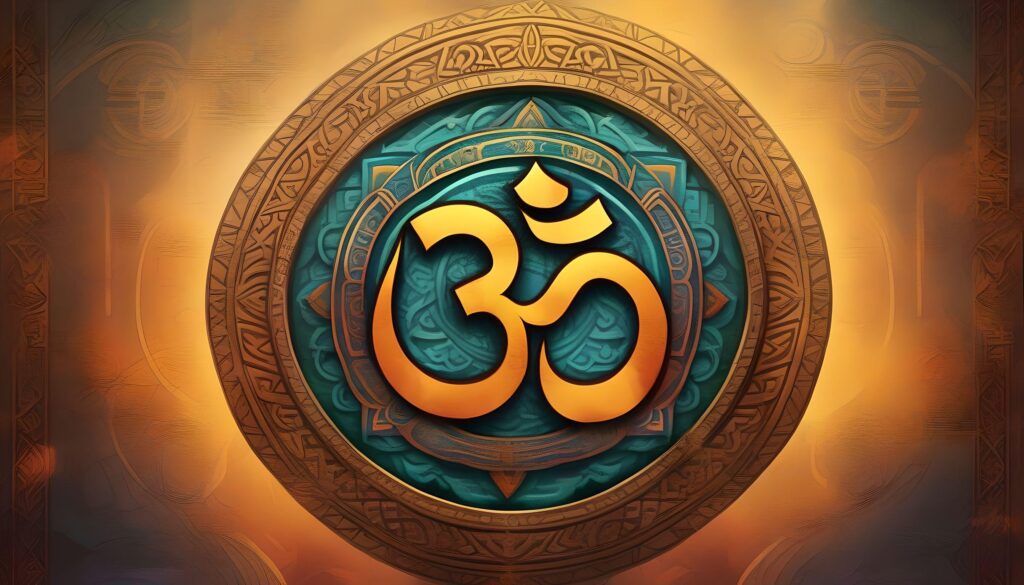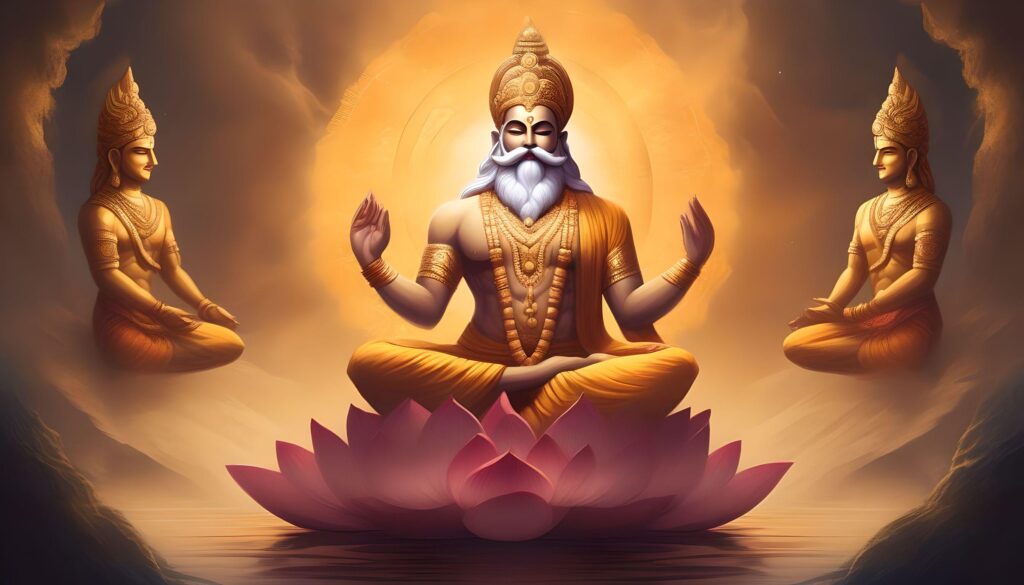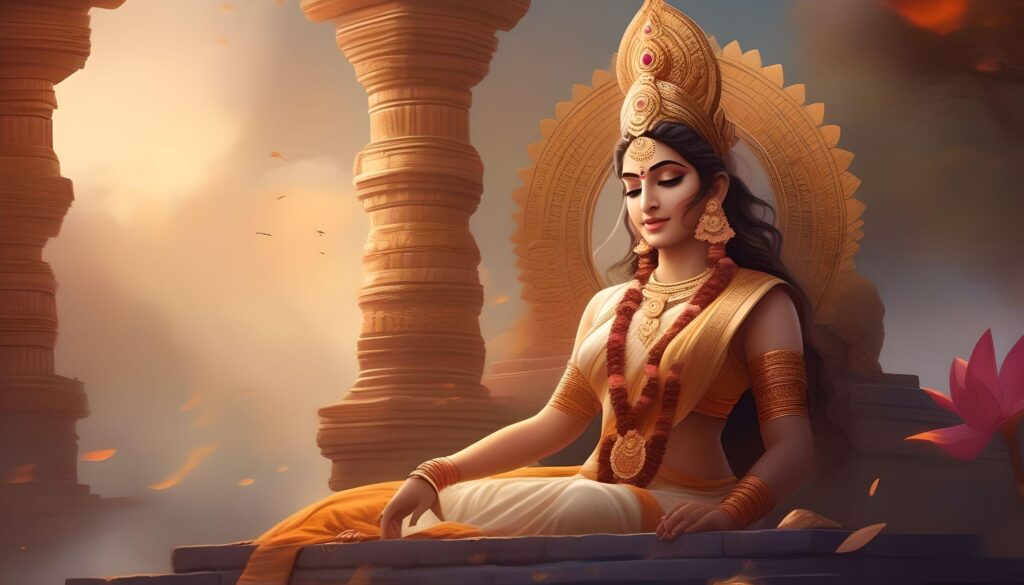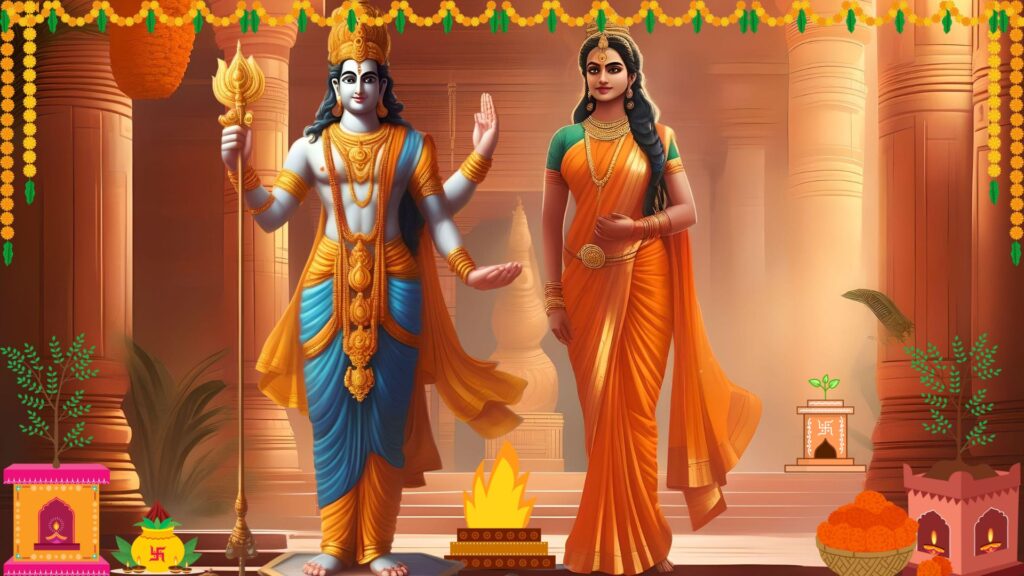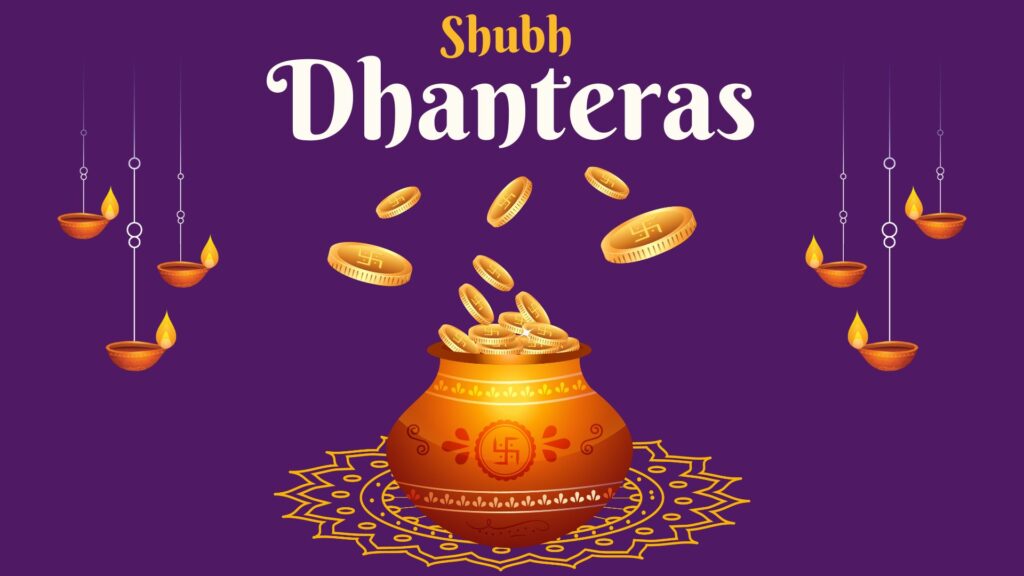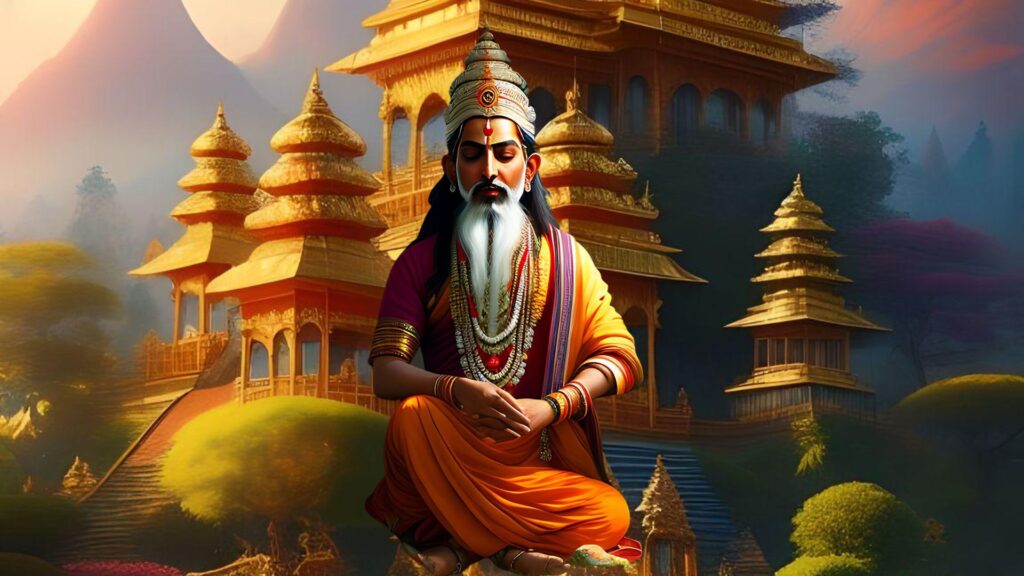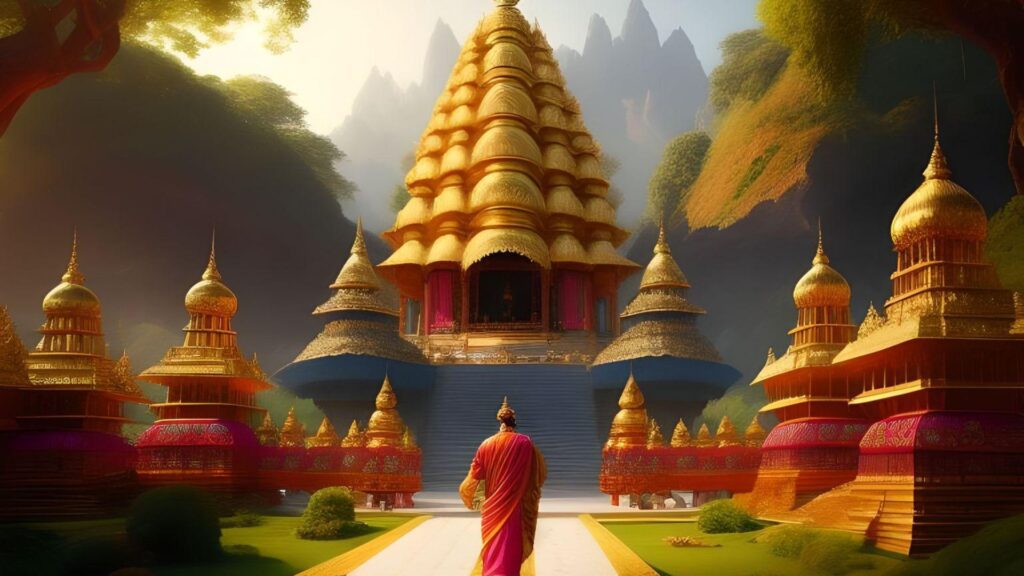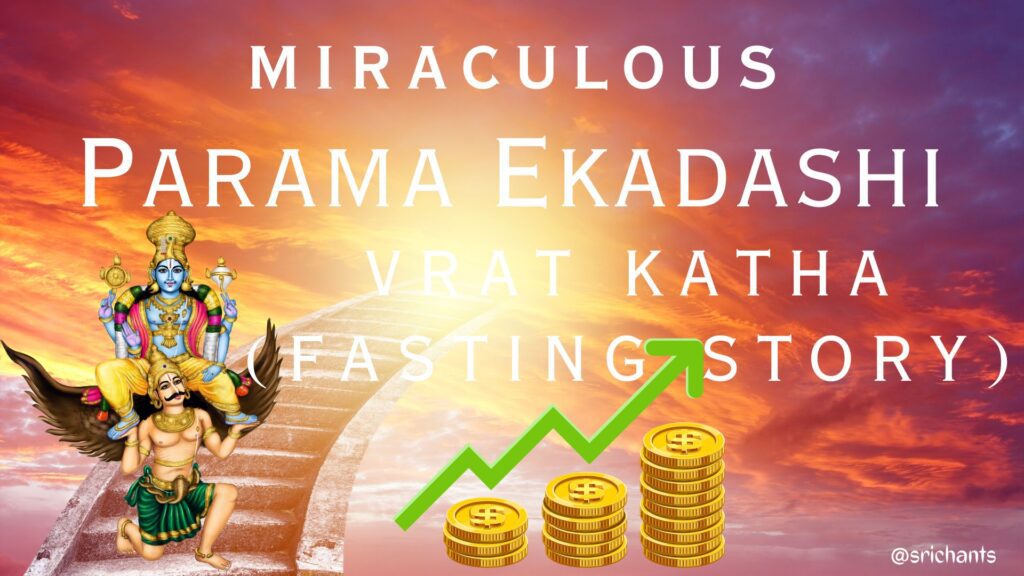Hindu Values : Morality and Moral Development in Hinduism
Introduction
A fundamental component of human conduct, morality establishes the distinction between right and evil. It is formed by a complex interplay of genetic and environmental influences, and its evolution has been the focus of detailed scientific investigation. The Hindu faith, renowned for its profound cultural legacy and time-honored scriptures, provides distinctive perspectives on the notions of morality and ethical growth. We will examine the relevance of traditional Hindu moral concepts in the twenty-first century in this article.
The Hindu Belief System
Hinduism is a multifaceted faith that incorporates an extensive array of doctrines and rituals. It is distinguished by its polytheistic orientation, in which numerous deities are venerated in diverse manifestations. The foundation of the Hindu belief system is the notion of Dharma, which can be interpreted figuratively as righteousness or moral obligation. Dharma is regarded as the moral and ethical bedrock upon which the universe is assembled.
Hindu Concepts of God and the Soul
A conviction in God serves as the foundational tenet for the spiritual odyssey of Hindus. In Hinduism, although there is no established progenitor or canon of sacred texts, the scriptures (known as shruti) are regarded as vital moral guides. Hindus endeavor to embody the teachings of the scriptures in their day-to-day existence in order to attain swanubhuti, an intimate relationship with God. As Brahman, the Hindu faith refers to the divine spirit that serves as the foundation of the universe. This inherent human essence is referred to as the Atman or soul.
Reincarnation and Karma
Hindus also adhere to the samsara cycle of reincarnation, in which the soul is reborn following mortality. The pinnacle of Hinduism is moksha, which signifies emancipation from the recurring pattern of mortality. The tenet of reincarnation is predicated on the law of karma, which posits that our deeds yield corresponding outcomes. As per the stipulations of this legislation, our actions will inevitably come back to haunt us. Ahimsa, or nonviolence, is a fundamental tenet in Hinduism, due to the belief that causing damage to others implies causing harm to oneself.
Hindu Deities and Worship
Hindus venerate an extensive number of deities, including goddesses and gods, yet they maintain the belief that they are all expressions of a singular divine entity. Concerning the formation, maintenance, and demise of the cosmos, there are three principal deities:
- Brahma: The creative force of the universe and the center of collective worship.
- Vishnu: The god of light and warmth, who preserves order and harmony.
- Shiva: The destroyer and re-creator of the universe, often depicted as a dancing figure.
Hindus are classified into distinct sects according to their preferred deity of veneration. Vaishnavites adhere to the teachings of Vishnu or his avatars, Krishna and Rama. Shaivites venerate Shiva, whereas Shaktas regard the mother goddess Shakti as the ultimate actuality.
The Caste System and Moral Duties
According to occupation, Indian society has traditionally been divided into four classes known as varnas. The caste system is ingrained in Hindu society and is regarded as an element of the cosmic order. Such are the four castes:
- Brahmins: The priestly caste responsible for maintaining ritual purity, teaching, and studying the scriptures.
- Kshatriyas: The warrior caste, whose duty is to protect others and maintain order.
- Vaishyas: The merchant and artisan caste, responsible for breeding cattle, tilling the earth, and trading in goods.
- Shudras: The laborer and peasant caste, expected to serve the higher classes.
The Untouchables, also known as exiles, exist beyond the four castes and are regarded as inferior to the point where they have no place in the caste system. Untouchables are frequently denied fundamental rights and opportunities and are subjected to severe social discrimination.
Life Cycle Rituals
Significant life events are commemorated through a variety of life-cycle rituals called samskaras, which are an integral part of Hinduism. Spiritual health and moral advancement are the intended outcomes of these rituals. Key life-cycle rituals in Hinduism consist of the following:
Birth Rituals
- First samskara: Offering food to the gods during the bride’s first fertile period.
- Second samskara: Expressing the desire for a male child during the second or third month of pregnancy.
- Third samskara: Parting the wife’s hair by the husband during the sixth or eighth month of pregnancy.
- Fourth samskara: Marking the child as a member of the Hindu faith after birth by writing the sacred Aum symbol on the lips or tongue with honey.
Adolescence
- Sacred thread ceremony: A rite of passage available to boys from the three upper castes, where they are given a sacred thread symbolizing their obligations to promote knowledge, respect their parents and ancestors, and contribute to society.
Marriage
- Wedding ceremony: In Hindu marriages, the bride and groom are dressed elaborately, and prayers are offered to deities. The couple exchange vows and make offerings to the sacred fire, symbolizing their commitment to each other.
Death
- Cremation: Hindus believe in cremating the deceased rather than burial. The body is bathed, dressed in new clothes, and placed on a pyre. The ashes are then scattered into a river if possible.
The Vedas and Upanishads
The Vedas are the most ancient religious texts in Hinduism, dating back to 1200-200 BCE. They are divided into four compositions, each with its own significance. The Samhitas consist of hymns of praise to the gods, the Brahmanas contain rituals and prayers, the Aranyakas focus on worship and meditation, and the Upanishads contain philosophical teachings.
The Upanishads, considered the pinnacle of Vedic wisdom, explore the nature of reality and the self. They emphasize the interconnectedness of the world and the importance of spiritual knowledge. The Bhagavad Gita, a part of the Mahabharata, is a revered Hindu text that provides moral guidance and teachings on duty, devotion, and the nature of reality.
Conclusion
Hinduism presents a distinct viewpoint regarding morality and the cultivation of moral integrity. Reincarnation, Dharma, and karma are fundamental principles that influence the ethical structure of Hinduism. Scriptures and rituals are indispensable for guiding individuals along their spiritual voyage and promoting moral values. A comprehensive comprehension of the traditional Hindu notions of morality can provide invaluable insights into the intricacies of personality formation and their contemporary applicability.
By assimilating the principles and teachings of Hinduism, individuals can endeavor to live a life that is moral and virtuous, thereby making a positive contribution to a society that is equitable and harmonious.

